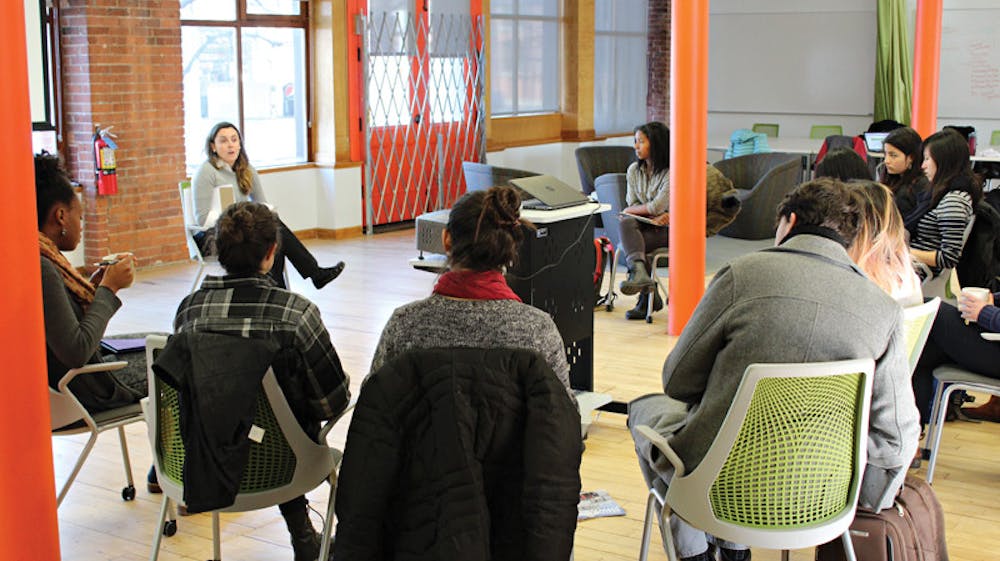While some students relaxed at home over winter break, 35 social action-minded undergraduates spent a week living in a church in downtown Providence as part of the Winter Break Projects, a program run by the Swearer Center for Public Service. Participants broke off into five smaller groups that each focused on a specific issue in Rhode Island, including homelessness, environmental justice, health care, refugee communities and education.
The Winter Break Projects differ from many community service initiatives, in that participants do not perform direct community service, but rather “explore and engage with local issues,” according to the Swearer Center’s website.
Jeremy Wortzel ’16, the Winter Break Projects community fellow, said the initiative is unique because it “puts a face to social justice,” allowing participants to engage with local communities even after winter break draws to a close.
The program brings together students from across class years and concentrations to make differences in their community, Wortzel said, adding that it “ends up being a camping trip where you learn a lot about other students you may not have otherwise met” in a sort of “week-long story circle.”
“By refocusing in Rhode Island, students who participated in the Winter Break Projects have a good chance of continuing their work with the community,” said Alan Flam, director of advising and community collaborations at the Swearer Center. “Our community programs ask students to commit long-term.”
“To be effectively engaged in community-based work, there is a lot a person needs to understand,” Flam added. “They need a foundation before they can jump in and get involved.”
The Winter Break Projects encourage participants to learn from the community members with whom they engage — the more students know about the community they are trying to help, the more beneficial work they can do, Flam said. The program “is a great source of leadership development for students,” who can get involved a second time around as group facilitators or fellows, he added.
“Through this program, I was able to feel that teachers learn from students and found a new definition of what it means to be a teacher,” said Adam Gilbert ’16, who was part of the smaller group that examined education in Providence. “Education is the backbone of society,” he said, adding that he “didn’t realize how in-depth and intense the project was going to be.”
The group explored the issue of urban education through a number of lenses, communicating with educators across the Providence school system, from administrators to the director of a teachers’ union, Gilbert said. The group’s meetings often featured extended dialogues that demonstrated that “what we were doing was trying to educate ourselves on our roles in making changes for social justice,” he said.

ADVERTISEMENT




